As the temperatures drop and winter sets in, horse owners face a unique set of challenges, one of which is the increased risk of colic[1]. Colic, a broad term for abdominal pain in horses, can occur for various reasons, but cold weather can exacerbate certain risk factors that contribute to digestive issues[2]. Winter colic, specifically, is often linked to changes in routine, reduced water intake, increased reliance on dry feed, and limited exercise—all factors that can disrupt the delicate balance of the horse's digestive system.
The Impact of Cold Weather on a Horse's Digestive System
In winter, horses often drink less water, which can lead to dehydration and the formation of impaction colic—a type of colic where the gut becomes obstructed due to dry feed and reduced motility[4]. Horses may also consume more hay or other high-fiber feeds during this season, which, although necessary for warmth and energy, can result in a heavier digestive load. Without adequate hydration, the fibrous material can accumulate in the intestines, leading to blockages. Cold weather can also reduce a horse's inclination to move as much as it does in warmer seasons[3]. This decrease in physical activity can slow down gut motility, making it harder for the digestive system to process food effectively.
Additionally, abrupt changes in routine, such as less pasture grazing and more time spent indoors, can upset a horse's digestive tract. Horses are creatures of habit, and sudden shifts in diet or environment can lead to stress, which in turn can negatively impact gut function[5]. Stress has been known to cause imbalances in gut flora, which are essential for maintaining proper digestion. Cold-induced stress, coupled with decreased water intake and changes in feeding patterns, make winter a high-risk period for digestive problems, including colic.
Common Types of Winter Colic
Several types of colic are commonly associated with the colder months, and understanding these can help owners mitigate the risks.
- Impaction Colic: This is perhaps the most common form of colic seen in winter. Impaction occurs when a blockage forms in the intestines, typically due to an accumulation of dry feed and lack of water[6]. Horses that do not drink enough during winter months are especially susceptible to impaction colic because the dry feed they consume (hay, grain, etc.) does not move through the digestive tract as easily without sufficient water.
- Gas/Tympanic Colic: Another common issue during the winter is gas colic, caused by an accumulation of gas in the intestines[7]. This can result from changes in diet, particularly when a horse consumes large amounts of starchy or high-sugar feeds like grains, which can disrupt the natural bacterial balance in the hindgut and lead to excessive fermentation and gas production. Cold weather can also slow digestion, making it more likely for gas to build up.
- Spasmodic Colic: This form of colic is caused by the overactivity of the intestines, leading to spasms and severe pain[7]. Spasmodic colic can occur when a horse experiences sudden changes in diet or routine, both of which are more common during the winter months. Stress from colder temperatures and restricted movement can further exacerbate this issue.
- Sand Colic: While sand colic is more common in areas where horses graze on sandy soils, it can also be a concern in the winter when horses are more likely to eat from the ground, consuming small amounts of sand or dirt with their feed. Over time, this can build up in the intestines and cause blockages[7].
Preventing Winter Colic: Essential Management Tips
- Ensure Adequate Water Intake: One of the most critical steps in preventing impaction colic is making sure your horse drinks enough water[1]. Horses tend to drink less in cold weather, especially if the water is too cold. Providing warm water or using heated buckets can encourage them to drink more. Additionally, adding salt or electrolytes to their feed can stimulate thirst.
- Monitor Diet and Feeding Practices: As horses rely more heavily on hay during the winter, it's important to provide high-quality forage and avoid sudden changes in diet[7]. If your horse's hay is particularly coarse or dry, consider soaking it to add moisture. Be mindful of the amount of grain or high-starch feeds, as these can contribute to gas colic and disrupt the gut's bacterial balance.
- Encourage Movement: Even if your horse is stabled more frequently during the winter, regular turnout and exercise are essential for keeping their digestive system functioning properly[7]. Movement stimulates gut motility and can help prevent both impaction and gas colic.
- Support Gut Health with Digestive Supplements: Digestive health is paramount during the winter months, and supplements like EquiNectar® can play a crucial role in maintaining a healthy digestive system. Made from malted barley, EquiNectar® is rich in natural enzymes that support the breakdown of feed, promoting better digestion and reducing the risk of impaction or gas buildup.
How EquiNectar® Helps Prevent Winter Colic
EquiNectar® is an all-natural digestive syrup designed to support your horse's gut health, which can be especially beneficial during the winter when digestive challenges are more prevalent. The syrup contains active digestive enzymes that help break down feed more efficiently, which is crucial when horses are consuming higher amounts of hay and less green forage. By improving the breakdown of starches, EquiNectar® reduces the load on the large intestine, preventing excessive fermentation that could lead to gas colic.
One of the key benefits of EquiNectar® is its ability to optimize the balance of bacteria in the hindgut. The hindgut is responsible for fermenting fibrous material like hay, and an imbalance in bacterial populations can lead to digestive issues such as gas production, bloating, and discomfort. By promoting the growth of beneficial bacteria, EquiNectar® helps maintain a healthy microbial balance, contributing to smoother digestion and reducing the risk of colic. Furthermore, this optimization can result in more consistent droppings, a sign that the digestive system is functioning well.
EquiNectar® is also rich in B vitamins, particularly folate and niacin, which support overall health and well-being. These vitamins play a role in energy metabolism and cellular repair, both of which are essential for maintaining a horse's health during the colder months when stress levels may be higher. Additionally, EquiNectar®'s pleasant taste encourages even the fussiest horses to finish their feed, ensuring they receive all the necessary nutrients without leaving any dry, unpalatable hay behind.
Another important function of EquiNectar® is its ability to reduce hindgut discomfort, which can manifest as agitation, irritability, or performance issues in horses. Hindgut discomfort is often caused by the buildup of gas or fermentation by-products, especially when horses consume large quantities of dry feed. By improving the efficiency of digestion and reducing the risk of gas accumulation, EquiNectar contributes to a calmer, more comfortable horse, helping to prevent the behavioral signs of digestive distress.
Conclusion
Winter can be a challenging time for horse owners, particularly when it comes to maintaining their horse's digestive health. The combination of cold temperatures, reduced water intake, changes in diet, and decreased exercise can all contribute to the development of colic, making prevention a top priority. Ensuring proper hydration, feeding high-quality forage, promoting regular movement, and supporting gut health with supplements like EquiNectar® are essential strategies for reducing the risk of winter colic.
EquiNectar®, with its natural malted barley formulation and active digestive enzymes, is an excellent tool for optimizing digestion during the colder months. By promoting healthy gut bacteria, improving the breakdown of feed, and reducing hindgut discomfort, EquiNectar® not only aids in preventing colic but also contributes to better overall performance and well-being. As part of a comprehensive winter care routine, EquiNectar® can help ensure that your horse remains healthy, comfortable, and colic-free throughout the season.
References
- Kentucky Equine Research. (2017). Temperature Swings and Colic in Horses.
- Moore, J. (2021). Overview of Colic in Horses. MSD Veterinary Manual.
- Kentucky Equine Research. (2017). Reducing the Risk of Colic During Cooler Weather.
- McNeill, C. (2024). Impaction Colic in Horses: Signs, Diagnosis, Treatment & Prevention. MB Mad Barn.
- Boucher, L., Leduc, L., Leclère, M., & Costa, M. C. (2024). Current Understanding of Equine Gut Dysbiosis and Microbiota Manipulation Techniques: Comparison with Current Knowledge in Other Species. Animals : an open access journal from MDPI, 14(5), 758.
- Hook Norton Veterinary Group. (2021). Impaction Colic in Horses.
- Blue Cross. (2024). Horse colic prevention and management.


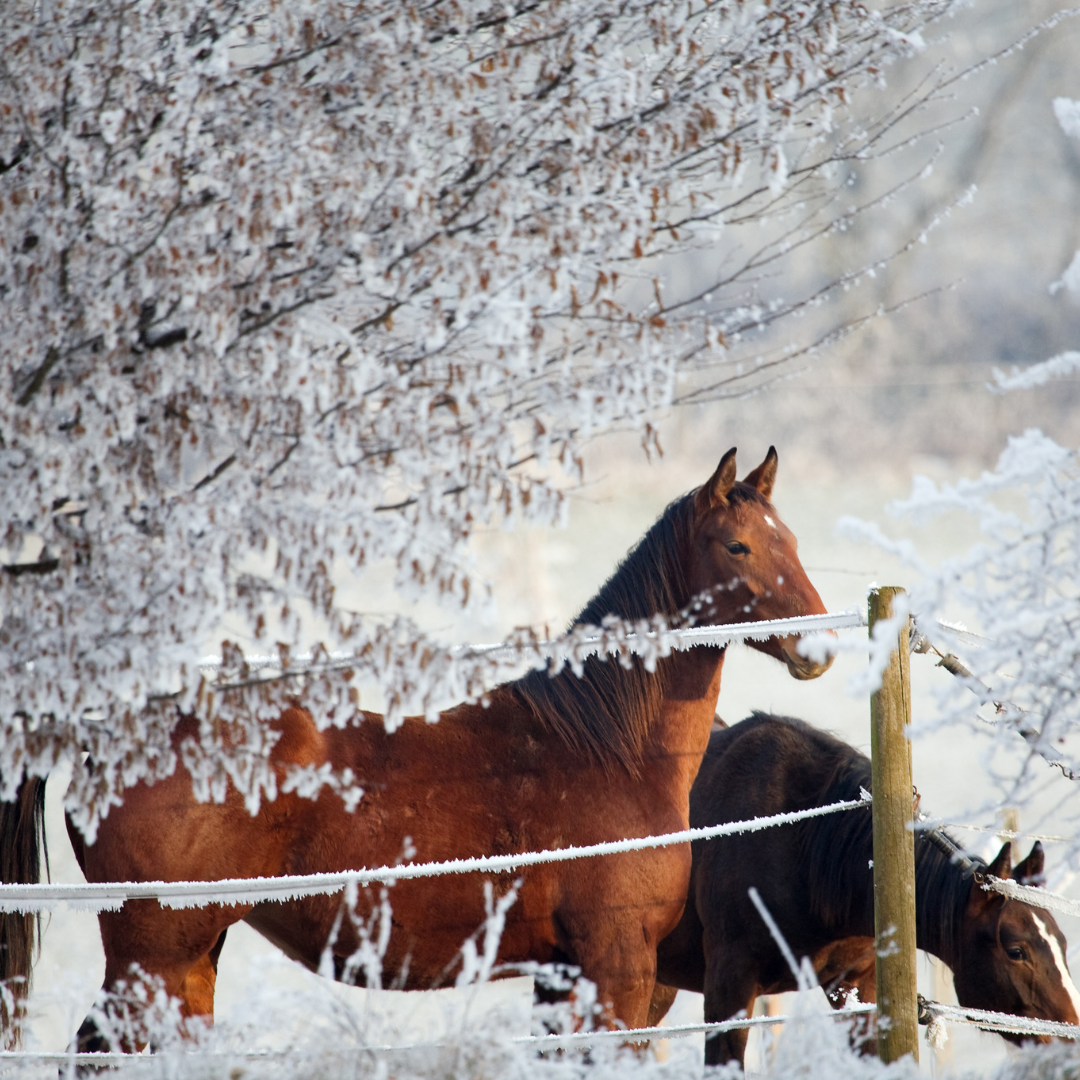
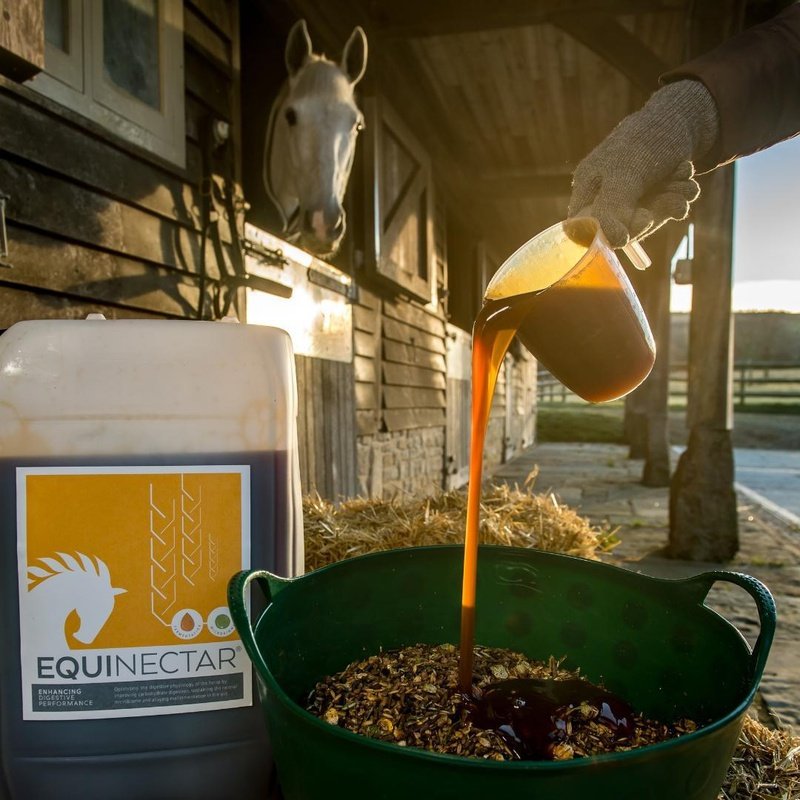
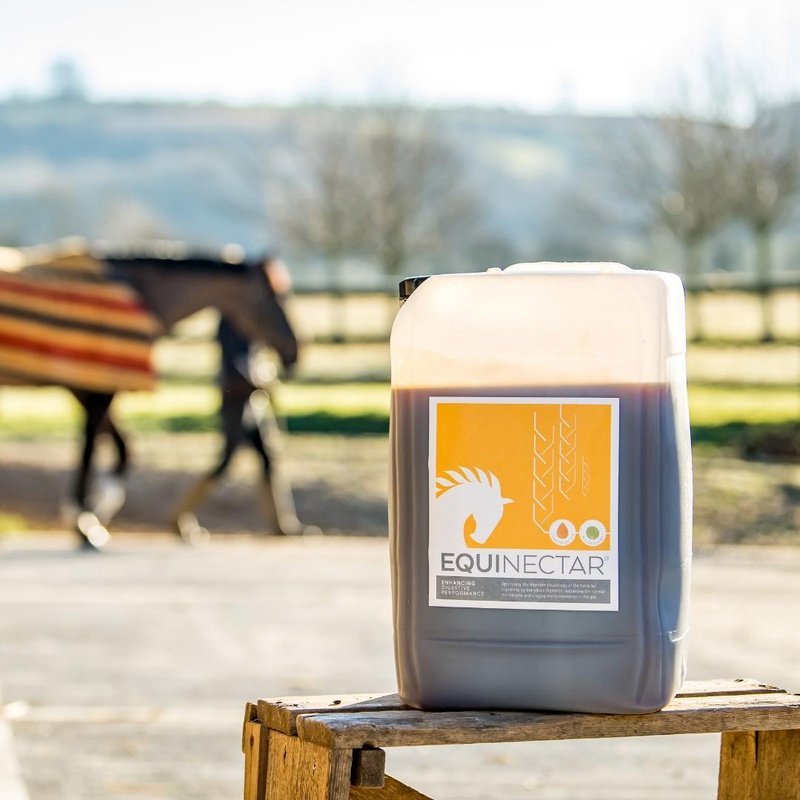
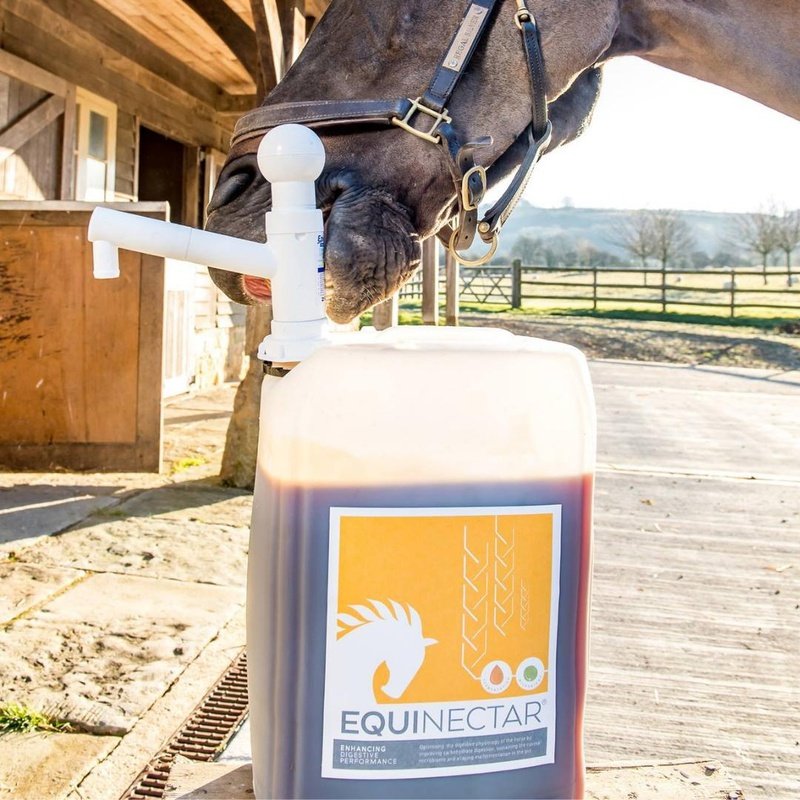
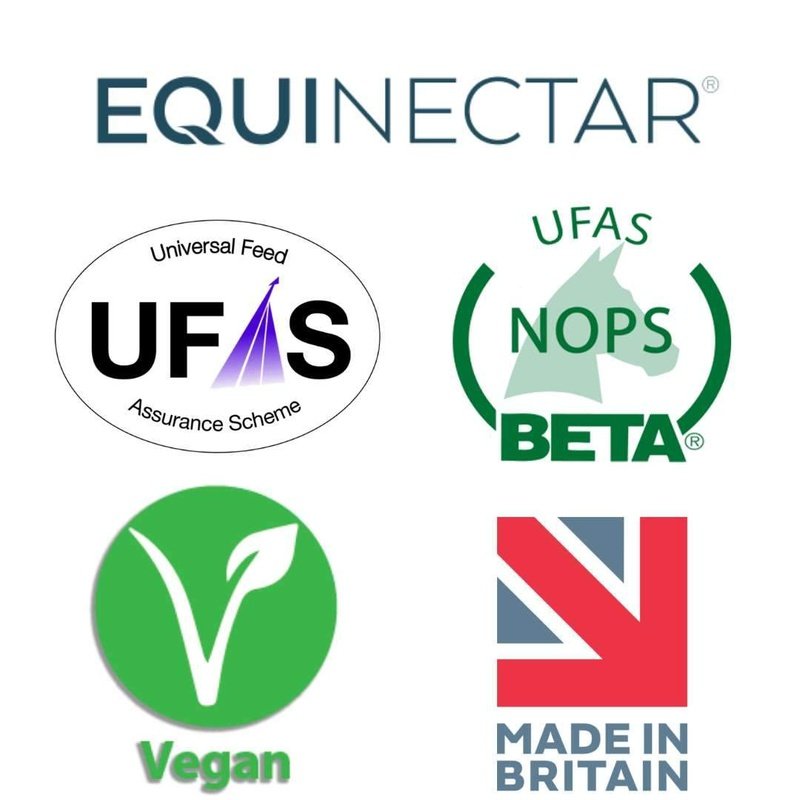
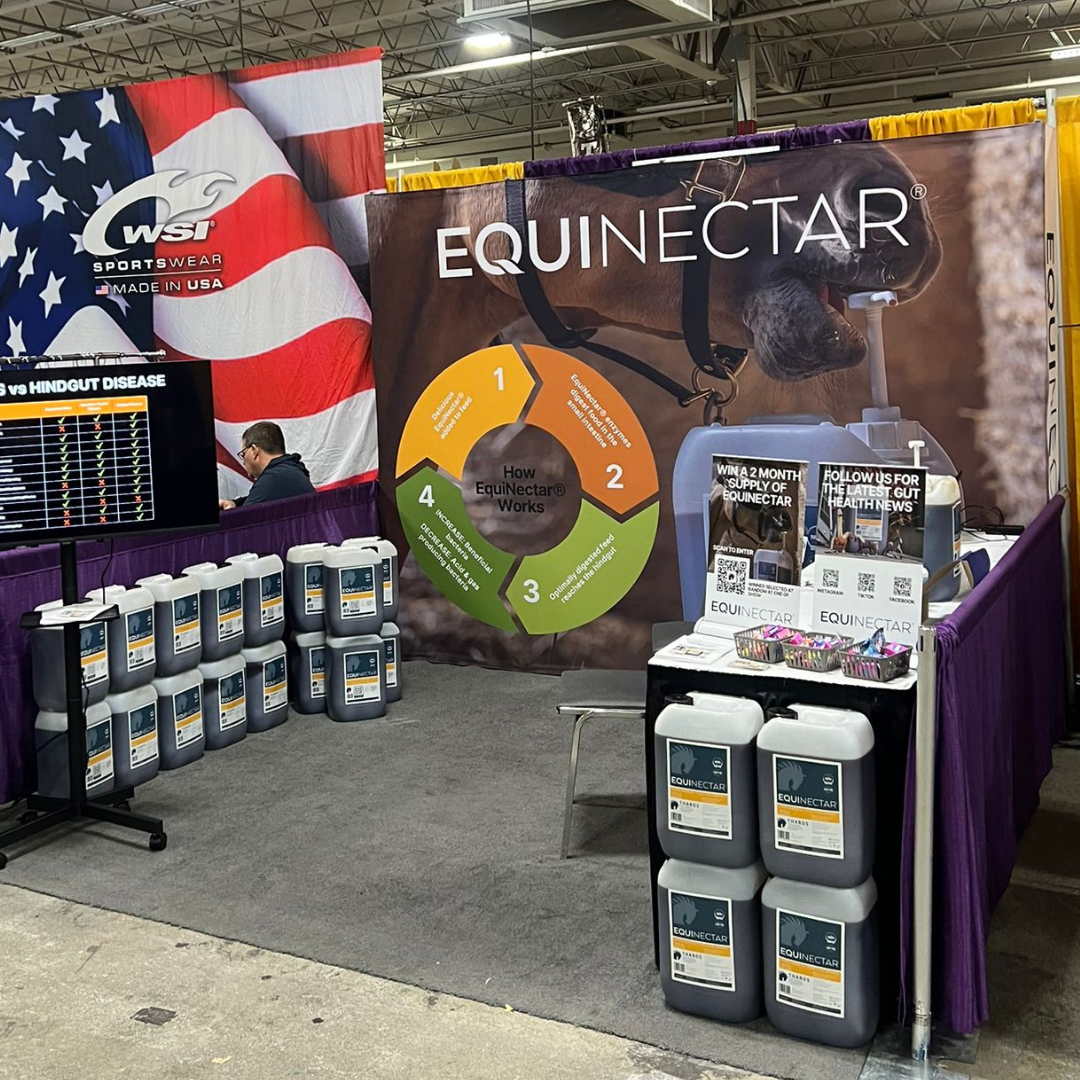

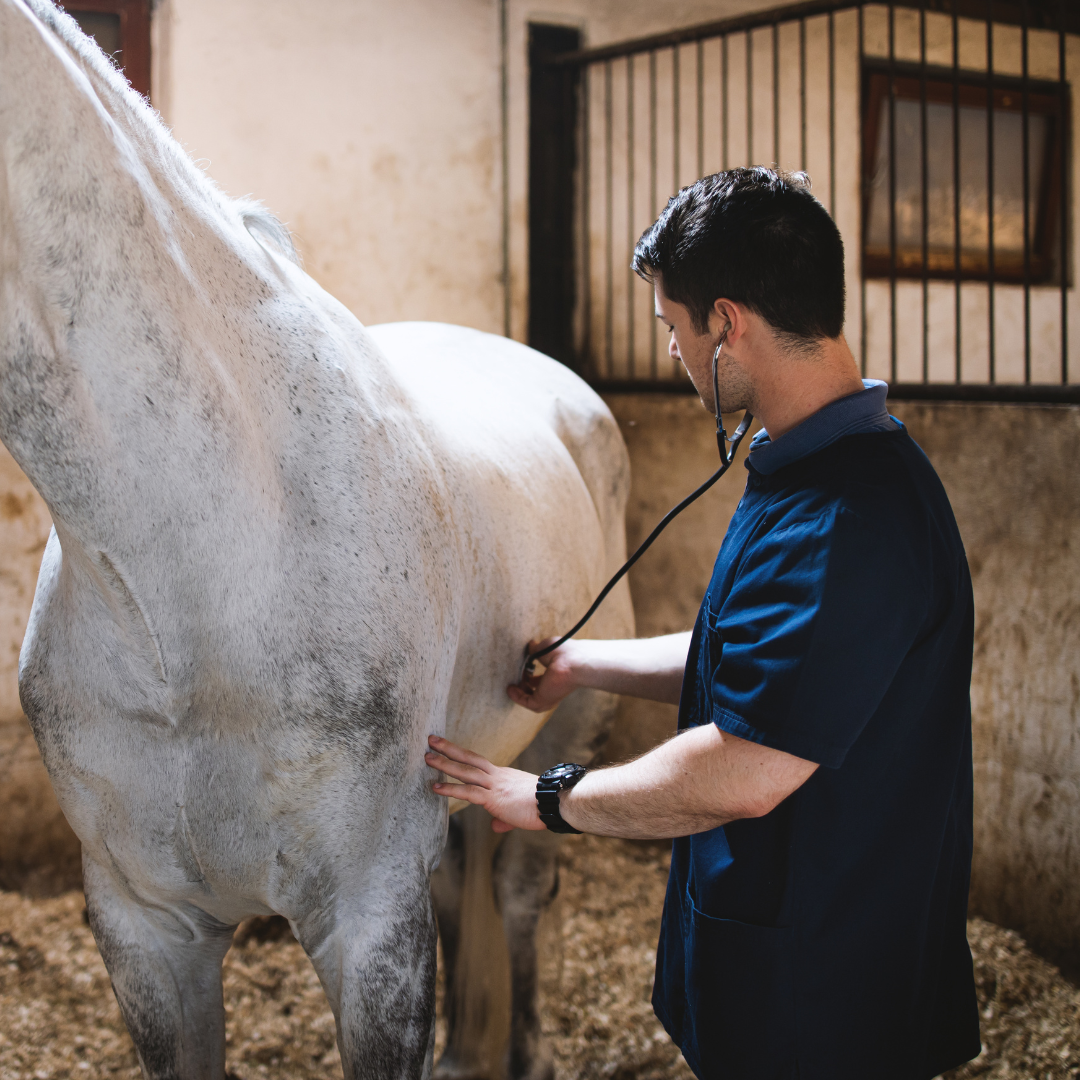
Share: